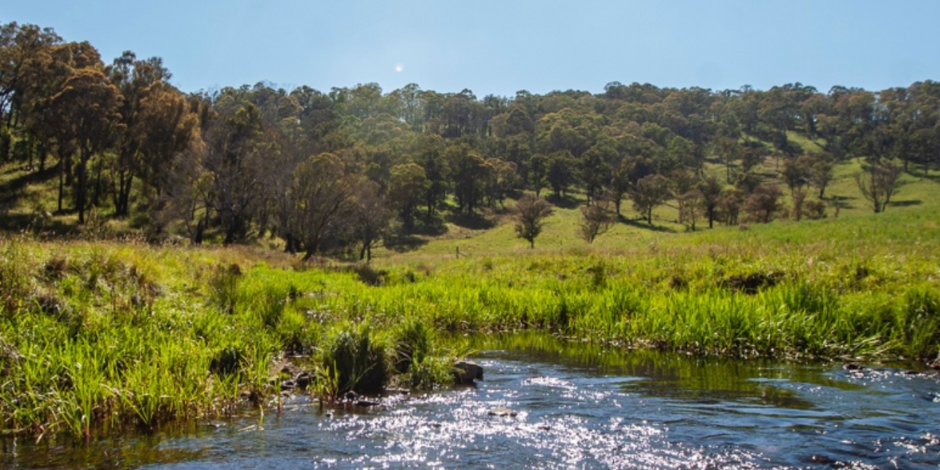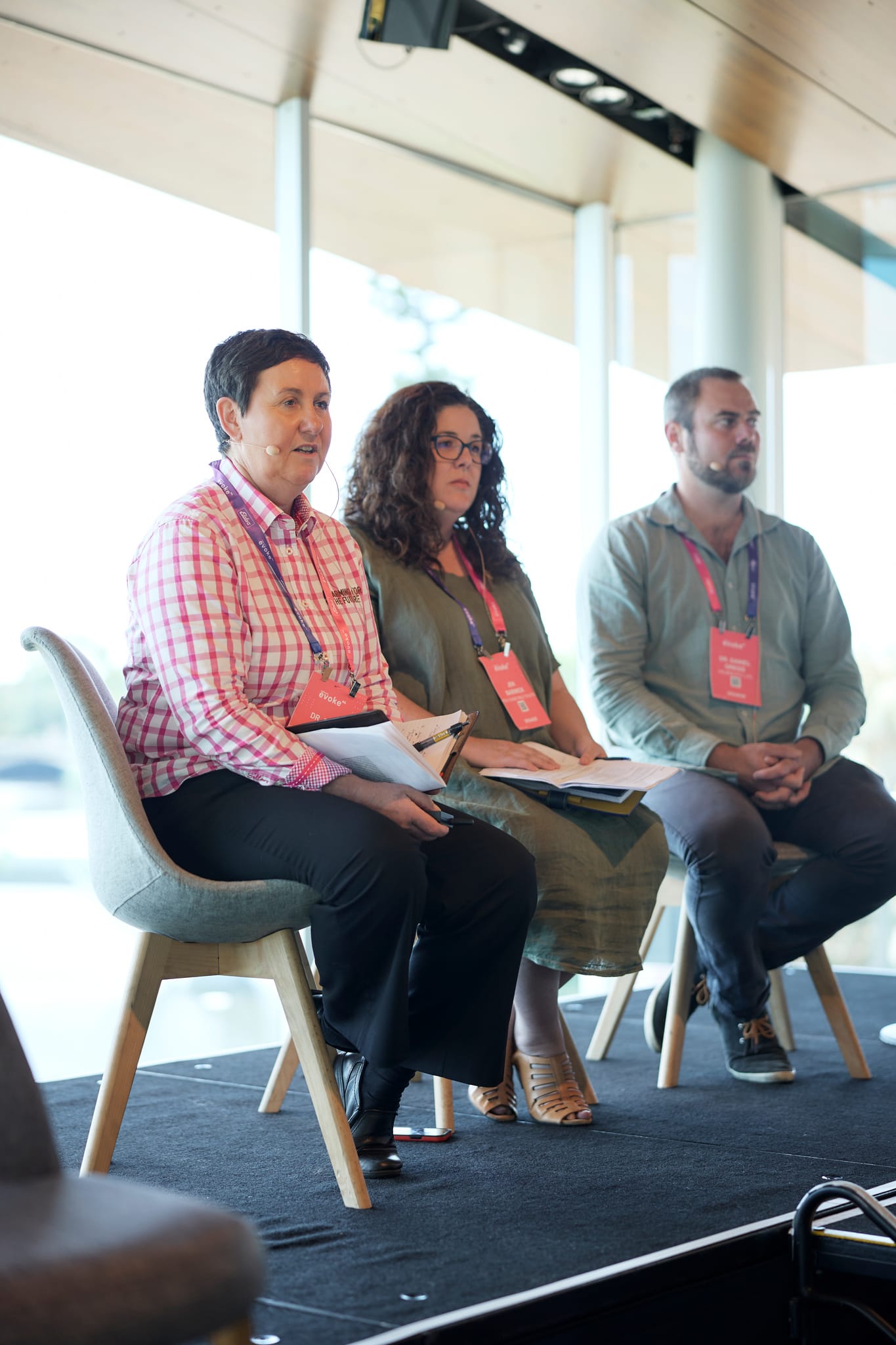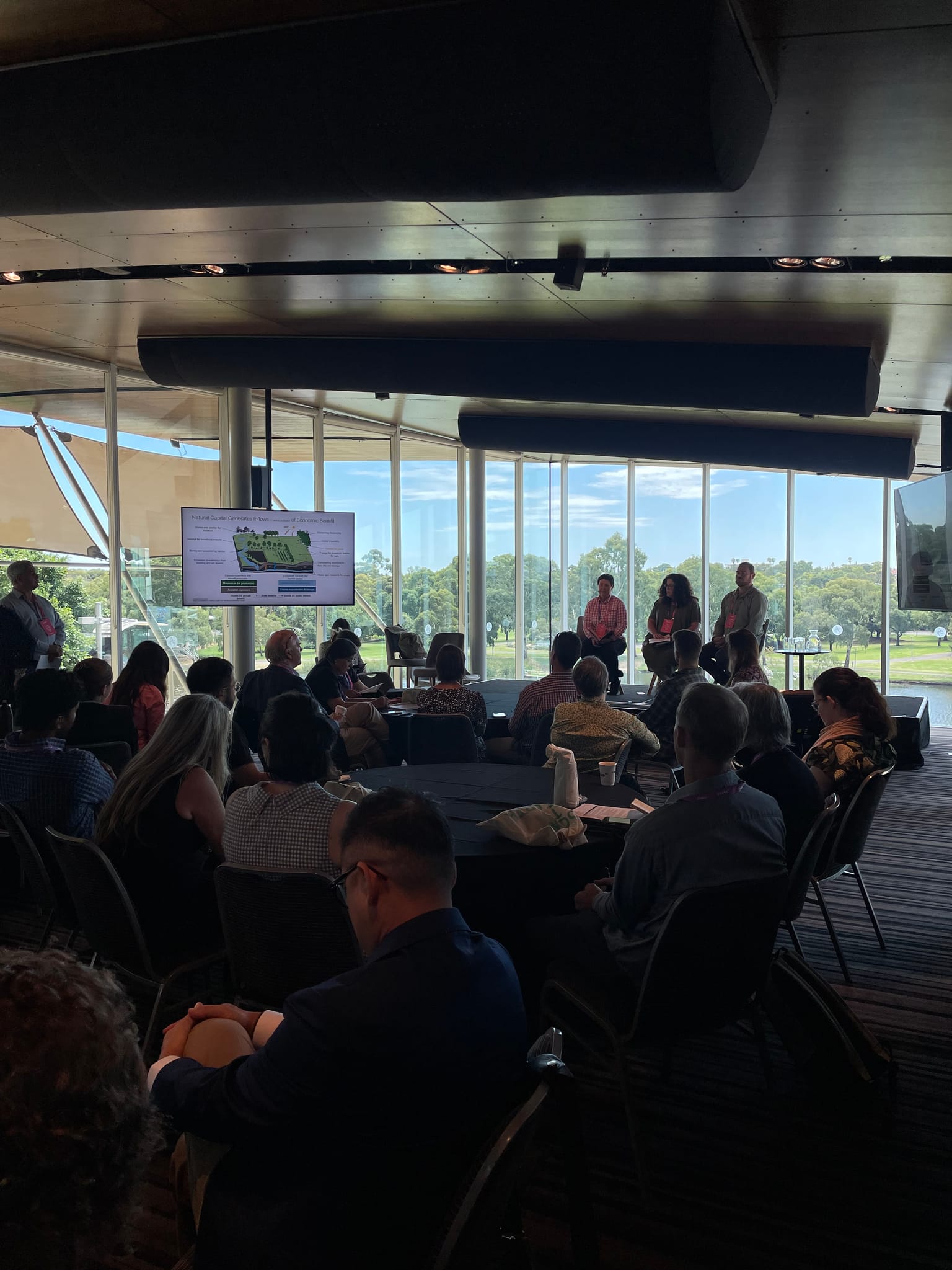Measurement and markets: empowering producers to make the most of natural capital
Farming in today’s economic climate is a battle between productivity and sustainability but what if there was a way for these two objectives to be achieved in tandem? Is it possible to grow economic prosperity at the same time as we diminish our carbon footprint? Could we revitalise Australia’s landscapes by the way we farm them? As it turns out, the answer lies in the hands of our farmers.

With ever growing pressure from Australian consumers for a more sustainable agricultural sector, and a ticking climate-change time bomb threatening long-term farm production, finding a solution that links sustainability and productivity hand-in-hand has never been more urgent.
While farming that actively seeks to improve natural capital is becoming more commonplace, it is not currently backed by compelling evidence that demonstrates the financial gains for farmers and the broader community.
At evokeAG. 2023, AgriFutures Australia brought together a panel of industry representatives who have been tasked with finding a solution.
Dr Sue Ogilvy leads the public interest research and change program, Farming for the Future, which was initiated by the Macdoch Foundation and undertaken in collaboration with Australian farmers and their trusted advisors. The program works to provide the evidence, tools and resources for agriculture to understand the links between natural capital and financial and non-financial benefits to farm businesses and farming families.
Natural capital is made up of all the biological and ecological assets you would find on a farm. Think soils, remnant native vegetation, productive pasturelands and croplands, riparian areas, water resources, agroforestry, environmental plantings and livestock.
“We know that natural capital generates really important inputs including shade and shelter for livestock, improved sets of forages for livestock production and improved soil nutritional value,” said Dr Ogilvy.

“We also acknowledge that natural capital can sometimes have outflows of economic benefit to farmers because sometimes it can provide habitat to pests, so what we’re trying to do is robustly establish a statistical relationship between natural capital and differences in farm business performance.”
Farming for the Future is currently collaborating with an extensive network of farm advisors, agricultural industry bodies, agritech companies, supply chain actors, the finance and investment sectors, state and Commonwealth government agencies, and academics.
Together, they are developing the survey protocols, statistical relationships and data platforms required to demonstrate the relationship between natural capital and farm business performance.
RELATED: Data, technology and tackling the four Cs
Data needed to underpin measurement
While every stakeholder is eager to persist with collaboration efforts, constraints still exist.
And according to Principal Economist at Farming for the Future, Dr Daniel Gregg, data seems to be the biggest limitation for agritech developers and the supply chain.
“If we want to improve measurement we need innovation and we need changes in the technology that underpin measurement on natural capital in order to reduce the cost of measurement, but currently access to data is pretty much non-existent.”
Currently, the Farming for the Future program has 130 farms which have been fully-funded to participate in data collection to assist collaborators establish a framework for measuring the value of natural capital.
The Macdoch Foundation plans to involve more farm businesses across Australia in the Program’s future funding rounds to expedite the research process and eventually discover a sweet-spot between productivity, climate and sustainability.
RELATED: How tech-stacks make life easier on-farm
Building market trust
The data being collected will also be important in the efforts underway across Australia to develop and improve early natural capital markets, such as Australia’s carbon market and the proposed Nature Repair market. These new markets are helping landholders to put a value on their natural assets, the work to restore and protect them, and the critical services they will deliver to Australia’s climate and biodiversity goals.

National climate and nature coordinator for Pew Charitable Trust, Jen Barwick sees a number of constraints impacting corporate, investor and government agencies efforts to develop natural capital markets.
“Trust is a big one, these markets are so new and novel and they’re changing and evolving fast, so I don’t think the suppliers, buyers or even the government have a lot of trust in the process or the end product at the moment. That’s why trusted, landholder-informed data and measurements will be critical” Ms Barwick said.
“Landholder capacity and capability is definitely a constraint. Information on how they can engage with these new markets, and help inform and deliver the outputs is critical but seemingly missing from current efforts.”
To encourage these markets to flourish, Dr Ogilvy believes that farmers need to take a seat at the table.
“Because farmers are the ones that business and society is putting on the hook to get our nature positive solutions, we need to have them involved in the program and it has to be beneficial for them at the same time,” said Dr Ogilvy.
To help farmers join the conversation, she outlined three important elements that must be managed properly.
“One is user-centred design in our technology so that the systems are useful and usable for our farmers,” she said.
“We’re also advocating heavily for open standards for data definitions so that those scientifically approved methods of measurement are able to be offered to farmers by competitive services so that farmers have lots of choice and they’re not locked in to one provider.
“The third thing is interoperability; so making sure systems are designed to interoperate and share data as appropriate.”
RELATED: There’s opportunity for agriculture in carbon markets but how should we use it?
Program Director at Farming for the Future, Dr Sue Ogilvy National Climate and Nature Coordinator for Pew Charitable Trust Jen Barwick, and the Principal Economist at Farming for the Future Dr Daniel Gregg were part of the panel discussion, ‘Empowering farmers to shape the future of environmental reporting’ at evokeAG. 2023. You can listen to the session here.
Early bird tickets are now on sale for evokeAG. 2024 to be held on 20-21 February 2024 in Perth, Western Australia. Following a sell-out event in 2023 we are encouraging delegates to secure their tickets, flights and accommodation early.
We look forward to seeing you in Perth for evokeAG. 2024, in the meantime, catch up on the other conversations about sustainability, climate resilience and the role of agtech in meeting those challenges from evokeAG. 2023 here.
